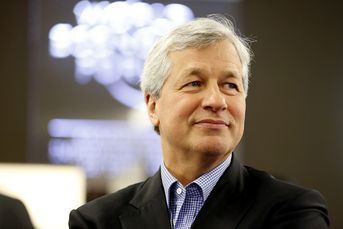Advisers can’t always rely on market performance

Volatility is quickly becoming a way of life post-pandemic, and the rally of the past decade may be giving way to a new era of market turbulence
The stock market rally over the past decade was an absolute luxury for independent advisers. Over the course of those 10 years, financial advice firms experienced revenue growth on average in the double digits, according to the latest pricing and profitability study by InvestmentNews Research in conjunction with BNY Mellon’s Pershing and The Ensemble Practice. Median revenue growth peaked at 15.5% in 2013, according to the data, and hit a low of just 5% in 2016.
Simply put, in an industry dominated by fees on assets under management, record-setting rallies equal revenue.
Of course, there are dozens of factors that have contributed to the trend, but there’s no doubt market performance ranks high on the list. Considering the S&P 500’s 11.6% surge in 10-year annualized gains and a 245% cumulative rally over the same time period, it’s safe to say market performance played a significant role in the emergence and success of the independent channel.
Fast forward to 2020 and advisers may want to take stock. As the past six months have taught us, volatility is quickly becoming a way of life post-pandemic, and the rally of the past decade may be giving way to a new era of market turbulence. The problem for advisory firms is that overdependence on market growth may have caused firms to ignore basic business practices — like forming long-term marketing strategies or making capital investments in technology — according to the research.
The InvestmentNews Research survey found that firms are allocating less than 4% of their revenues to marketing and technology. According to the report, which queried more than 300 independent and hybrid advisers, even firms that expect marketing to jump-start growth are lacking the basics of sales management techniques. The research shows inadequate lead tracking, and advisers have very little individual accountability.
The lack of a solid business development strategy for some practices has the potential to create wide disparities in future growth. If AUM fees aren’t as reliable as they have been over the past decade, will independent advisers struggle to keep pace?
While the data are striking, advisers have the advantage if blue skies suddenly turn stormy. During times of turbulence, clients are in need of additional hand-holding and the guidance that seasoned financial advisers are well positioned to provide. That means more opportunities for advisers to reach out to customers. Creating and maintaining those relationships is at the heart of wealth management, and advisers should relish times when they can provide counsel clients need to weather the storms.
For the independent channel to continue its unprecedented growth, advisers would do well to focus not only on the performance of the markets, but on internal systems, like marketing and technology, to ensure their practices are running soundly. Having the capabilities to reach out and help clients will be paramount if the markets — and associated fees from assets under management — suddenly falter.
Learn more about reprints and licensing for this article.







